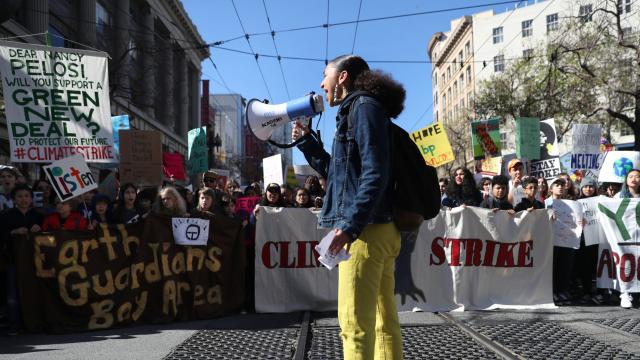The how-to-fix-it climate genre has become an increasingly crowded space in nonfiction publishing these days. From Eric Holthaus’ Future Earth to Christiana Figueres’ and Tom Carnac’s The Future We Choose, the roadmap to fixing the damage done to the climate is being filled in. All We Can Save is the latest entry into the field, but it stands out for the collaborative and inclusive nature of its vision.
It feels weird to start a book review writing about the epilogue, but it’s only there that we learn why scientists Ayana Elizabeth Johnson and Katharine Wilkinson chose the book’s name. It was inspired by the Adrienne Rich poem “Natural Resources,” and each word has meaning for them. While they’re all important, the word that stands out the most to me is “we.”
“‘We’ speaks to the collective, to collaboration, to community,” they write. It’s a word heard time and again throughout the book’s 60 essays and poems, written by luminaries in the climate field, all of whom are women.
“We are architects of our future — not the fossil fuel industry,” Sierra Club national director of campaigns Mary Anne Hitt writes.
“We must establish a new social attitude to see migrations as a public benefit — a nature-wide necessity for our global survival — not as a threat to our individual privilege,” Colette Pichon Battle, the executive director of the Gulf Coast Centre on Policy and Law, writes.
“We cannot make enough headway on the climate problem by working at the individual level. We need to organise our efforts,” writes University of California, Santa Barbara energy expert Leah Stokes.
“We” has been a fraught word when it comes to who’s most responsible for climate change. While it’s often used as shorthand for “the world,” its vagueness obscures the fact that a cadre of very wealthy people and corporations drove us to crisis. An Oxfam report put out this week shows the actions of the world’s richest 1% emit double the amount of carbon dioxide as the bottom 50% in recent years. Meanwhile, a paltry 100 companies are the drivers of 71% of global carbon emissions. So when it comes to who’s responsible for the root cause of climate change, it’s disproportionately driven by decisions and actions made by a small group that’s largely wealthy, largely white, and largely male.
All We Can Save puts those groups on blast. But it offers a path forward, one where “we,” in the truest meaning, grasp power and fix what is broken. The essays espouse how to restore our relationship with nature and each other. Together, they call for a decidedly humanist and inclusive approach welcoming everyone from wherever they are into the fight to protect what’s left and repair what we can.
As Rhiana Gunn-Wright, one of the architects of the Green New Deal and director of climate policy at the Roosevelt Institute, writes: “We move together, or we risk not moving at all.”
